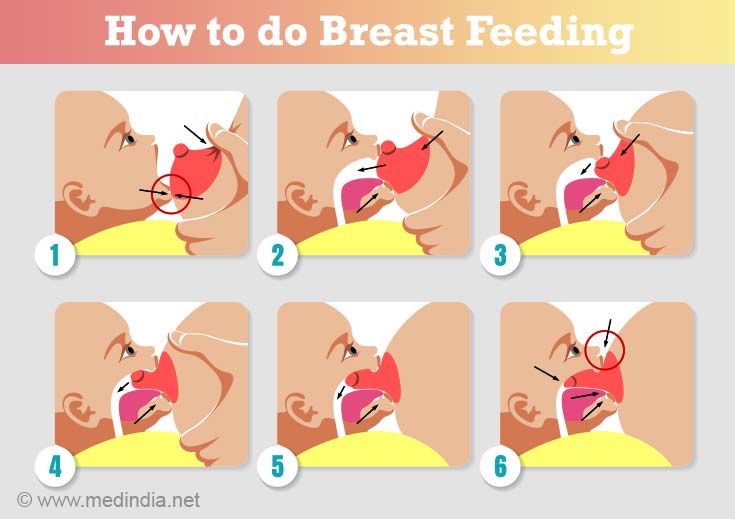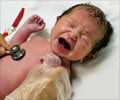Directions for Breast Feeding
Good Health begins with mother. There is no substitute to her milk.

Most of the babies come into the world knowing how to be breast-fed. If you get them anywhere close, they nuzzle, get attached, and suck away. Some need a little assistance.
To breast feed properly, your baby needs to open its mouth wide enough to take in the nipple and about a centimeter or two of the breast beyond it.
Your free hand should be used to support your breast, keep it in the baby's mouth, and keep it out of the baby's nose. Use your fingers under the breast with your thumb on the top.
Hold the baby at your breast by positioning it on its side or tummy-to-your tummy with its mouth at nipple level. During the first breast feedings, it is often helpful to remove the upper clothing from both mother and baby to be skin-to-skin.
To help the baby get started, express the milk into its mouth. This encourages the baby to open wide, suck, and swallow.
As a general rule, you'll breast feed your newborn eight to twelve times per day. Breast-feed your baby on demand, not by the clock. You don't want to let your baby get overtly hungry, as it does not feed well if you do so.
Sucking does not equal eating. Check to see if your baby, who is sucking away furiously, is actually swallowing. Babies usually do some sucking to swallow the saliva.
Newborns usually suck one to three times, and then swallow. Thus a new born who is sucking 15 minutes per breast, but not swallowing, is not receiving enough feeds and may need to breast feed 20 to 25 minutes per breast to get enough milk. The more the baby breast-feeds, the more milk your body will produce. Newborn babies breast feed about every two hours. However, they often breast feed for many reasons other than hunger. Therefore, allow the newborn to breast-feed as often as he or she wishes. Make sure the baby is sucking effectively. Offer both breasts at each feeding. Your baby's nose may be touching your breast during nursing. Babies' noses are designed to allow air to get in and out in such a case. But if you're concerned that your baby can't breathe easily, you can gently press down on your breast near your baby's nose to give him or her enough room to breathe.
Feeding her baby is a lifetime experience for a woman and there is no substitute for the mother's milk to the child. This is one of the most beautiful periods in the life for both the mother and child where the bond for each other develops. Breast feeding not only develops a baby into a healthy human being, but also contributes greatly to the mental development. In this feature, an attempt is made to make the expectant mother understand the various aspects of breast-feeding and its importance















